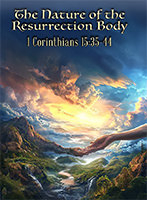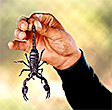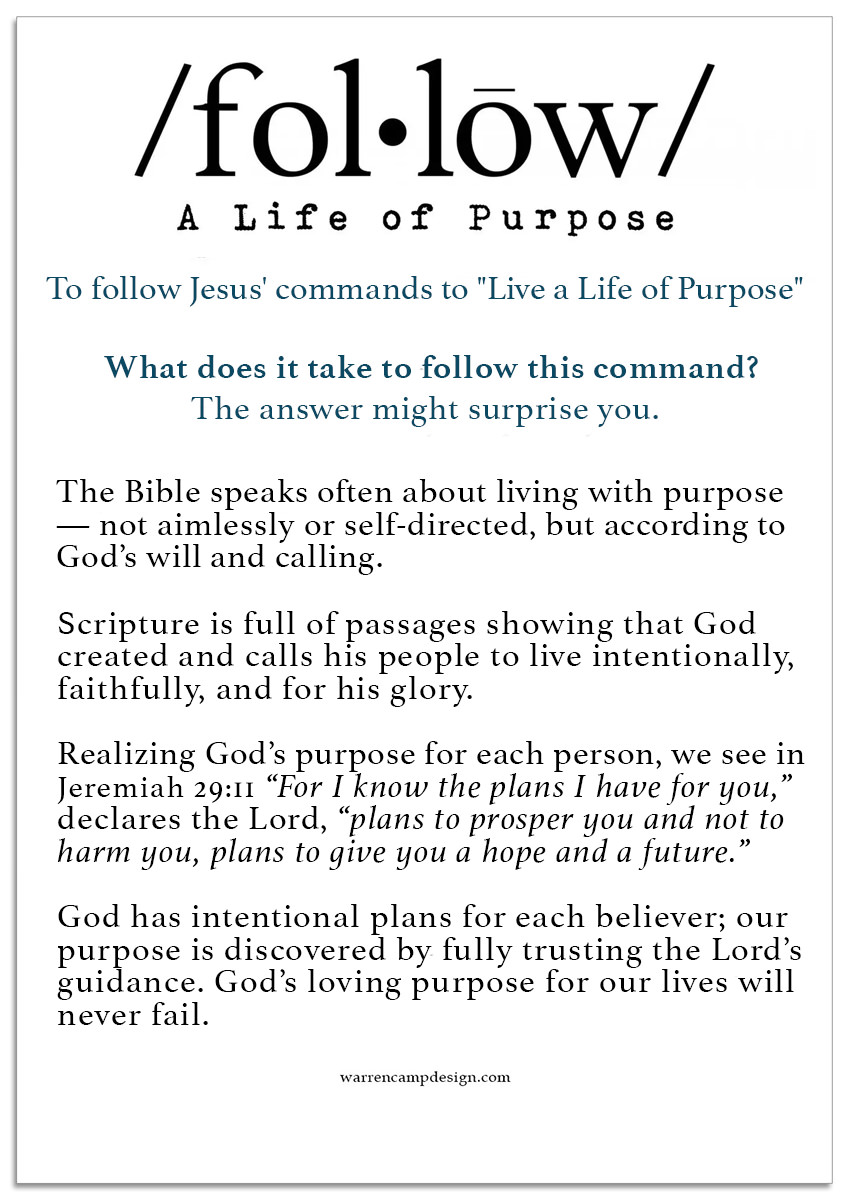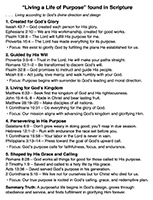First Corinthians 15:35–58 . . .
The Resurrection of the Body
What is God’s final answer to pain and suffering in this world? It’s the hope of bodily resurrection. Impossible though it may be for us to understand the details of how God is going to pull that off, we hang our hopes on this: Someday, he’ll make it right; I thank God that my body and life will change. In 15:35–49 (see this passage at the bottom of the page), Apostle Paul tells us that once we die, we’ve truly begun to live. In those fifteen verses, we’ll learn these two resurrection realities that will prepare us for our eternal existence.
1) The bodily resurrection is familiar yet unique (vv. 35–41) Paul argues strongly in chapter 15 for the resurrection of the body (see my previous commentaries: 15:1–11 and 12–34); but he knew that his teaching would spur two questions: (1) How will God resurrect our bodies? and (2) What does a resurrection body look like? He’ll answer these questions posed by a hypothetical objector (v. 35) as follows: “But someone will ask, ‘How are the dead raised? With what kind of body will they come?’” You’ve no doubt wondered, How will God resurrect people out of the dirt, especially those buried centuries ago? How about the ashes of cremated bodies that were tossed into the sea or open fields? The quick response to this dilemma: If God is God, he can easily resurrect the humans whom he created. (After all, God constructed man out of the dust of the earth, right? Read it now: Genesis 2:7)
Of course, not everyone will accept this biblical argument. Paul anticipated the objection of someone arguing against the idea of a bodily resurrection. In v. 36, he calls such a person “foolish,” which the Bible defines as someone who fails to take God into account. Basically, he’s saying, Somebody bring this guy some wheat seeds and remind him how wheat kernels grow and produce grain. They must be planted in the ground and then die for grain’s new life to begin.
In vv. 39–41, Paul expands his argument by describing the unique nature of various “bodies.” The “flesh” of men is made for walking, that of birds for flying, and that of fish for swimming. God designs bodies to fit the environment in which they’ll live. Our resurrection bodies will be perfect for the heavenly environment. Paul continues his argument (vv. 40–41) telling the Corinthians [and us] that earthly bodies will pale in comparison to heavenly bodies, which are glorious!
2) The bodily resurrection is new and improved (vv. 42–49) Here, Paul contrasts the two living bodies — the present body and the resurrection body. Your present body was created to last only a few years; your resurrection body will equip you for a much higher and longer level of existence.
At the resurrection, our bodies will be transformed from our current “caterpillar” form to a future “butterfly” form. The beauty of a butterfly is far superior to a caterpillar’s, but the butterfly must first go through a transformation process. Four essential changes take place when transforming the body from earthly to heavenly: Change 1 is Perishable to Imperishable (v. 42); Change 2 is Dishonor to Glory (v. 43a); Change 3 is Weakness to Power (v. 43b); Change 4 is Natural to Spiritual (v. 44).
In vv. 45–49, Paul draws comparisons between Adam and Jesus, arguing that there’s a difference between earthly and spiritual bodies. The first Adam was merely a living human being. By emphatic contrast, the last Adam — a.k.a. Jesus — isn’t merely living, but life-giving. That is: Christ gives life through his resurrection.
Paul made the next four verses (vv. 46–49) simple, arguing that the heavenly body is greater than the earthly body. But in order to experience the heavenly body, one must first live in an earthly body.
The apostle concludes his glorious resurrection chapter (vv. 50–58) by giving each and every one of us encouraging instructions on what three things we’re to celebrate about our upcoming resurrection: (1) the future transformation of our body (vv. 50–53); (2) the future termination of sin (vv. 54–57); and (3) the future compensation of our work (v. 58).
In his lasting reminder (v. 58), Paul reiterates his closing command that begins with “Therefore.” He commands us to “stand firm,” be unmovable, always work hard for the Lord, and know that the work we do for Jesus is never to be done in vain. Yes, Paul’s command in this closing verse is a clear directive: Believers of Jesus are to follow his directives to live purposefully for God. He calls believers to stand firm, remain immovable, and always be diligent in the Lord’s work, assuring them that nothing done for Christ is ever wasted or meaningless.
Christ was lifted up that he might lift us up.
Note: 1st Corinthians challenges believers to examine every aspect of their lives through the lens of the Gospel. In chapters 15–16, Paul presents these two lessons:
The resurrection of Christ (ch. 15) | Collections for the Lord’s people (ch. 16)
› Watch BibleProject’s superb animated video (1 minute) that highlights Paul’s messages in these two chapters.
† Summary of 1 Corinthians 15:35–58
Paul, in this follow-up passage of chapter 15, addresses questions about the nature of the resurrection body and the final victory over death. Here’s a summary of his key points:
• The Nature of the Resurrection Body
To explain the resurrection body, Paul uses these analogies:
† A seed that dies before growing into a plant (vv. 36–38)
† Different kinds of bodies (vv. 39–44: human, animal, celestial bodies)
Then he contrasts the earthly body with the resurrection body:
† Perishable vs. imperishable
† Dishonor vs. glory
† Weakness vs. power
† Natural vs. spiritual
• The Order of Resurrection
Here’s how Paul outlines the order of key resurrections:
† Adam, the first man (a living being)
† Christ, the last Adam (a life-giving spirit)
† Natural body first, then the spiritual body
• The Mystery of Transformation
Paul reveals a perplexing mystery to be considered.
† Not all will die, but all will be changed.
† This will happen in an instant, at the last trumpet.
• Victory Over Death
The passage culminates in a triumphant declaration of victory over death.
† Death is swallowed up in victory.
† The sting of death (sin) and the power of sin (the law) are overcome.
• Exhortation to Faithfulness
Paul concludes with encouraging recommendations and truths for the Corinthians:
† Stand firm and immovable.
† Always give yourselves fully to the Lord’s work.
† Never is your labor in the Lord done in vain.
This passage provides hope and assurance to believers regarding the future resurrection, emphasizing the transformative power of Christ over death and sin.
- Q. 1 In today’s passage, what’s most comforting for you, as you consider the reality of your death?
- Q. 2 What does it mean to you knowing that one day you’ll have a glorified body, free from any hindrances?
- Q. 3 How will the new knowledge of your future resurrected body influence your thinking and living today (vv. 50–53)?
1 Corinthians 15:35–58
New International Version (NIV)
[You can view it in a different version by clicking here; you can also listen to this chapter.]
The Resurrection Body
35But someone will ask, “How are the dead raised? With what kind of body will they come?” 36How foolish! What you sow does not come to life unless it dies. 37When you sow, you do not plant the body that will be, but just a seed, perhaps of wheat or of something else. 38But God gives it a body as he has determined, and to each kind of seed he gives its own body. 39Not all flesh is the same: People have one kind of flesh, animals have another, birds another and fish another. 40There are also heavenly bodies and there are earthly bodies; but the splendor of the heavenly bodies is one kind, and the splendor of the earthly bodies is another. 41The sun has one kind of splendor, the moon another and the stars another; and star differs from star in splendor.
42So will it be with the resurrection of the dead. The body that is sown is perishable, it is raised imperishable; 43it is sown in dishonor, it is raised in glory; it is sown in weakness, it is raised in power; 44it is sown a natural body, it is raised a spiritual body.
If there is a natural body, there is also a spiritual body. 45So it is written: “The first man Adam became a living being”; the last Adam, a life-giving spirit. 46The spiritual did not come first, but the natural, and after that the spiritual. 47The first man was of the dust of the earth; the second man is of heaven. 48As was the earthly man, so are those who are of the earth; and as is the heavenly man, so also are those who are of heaven. 49And just as we have borne the image of the earthly man, so shall we bear the image of the heavenly man.
50I declare to you, brothers and sisters, that flesh and blood cannot inherit the kingdom of God, nor does the perishable inherit the imperishable. 51Listen, I tell you a mystery: We will not all sleep, but we will all be changed — 52in a flash, in the twinkling of an eye, at the last trumpet. For the trumpet will sound, the dead will be raised imperishable, and we will be changed. 53For the perishable must clothe itself with the imperishable, and the mortal with immortality. 54When the perishable has been clothed with the imperishable, and the mortal with immortality, then the saying that is written will come true: “Death has been swallowed up in victory.”
55“Where, O death, is your victory?
Where, O death, is your sting?”
56The sting of death is sin, and the power of sin is the law. 57But thanks be to God! He gives us the victory through our Lord Jesus Christ.
58Therefore, my dear brothers and sisters, stand firm. Let nothing move you. Always give yourselves fully to the work of the Lord, because you know that your labor in the Lord is not in vain.






